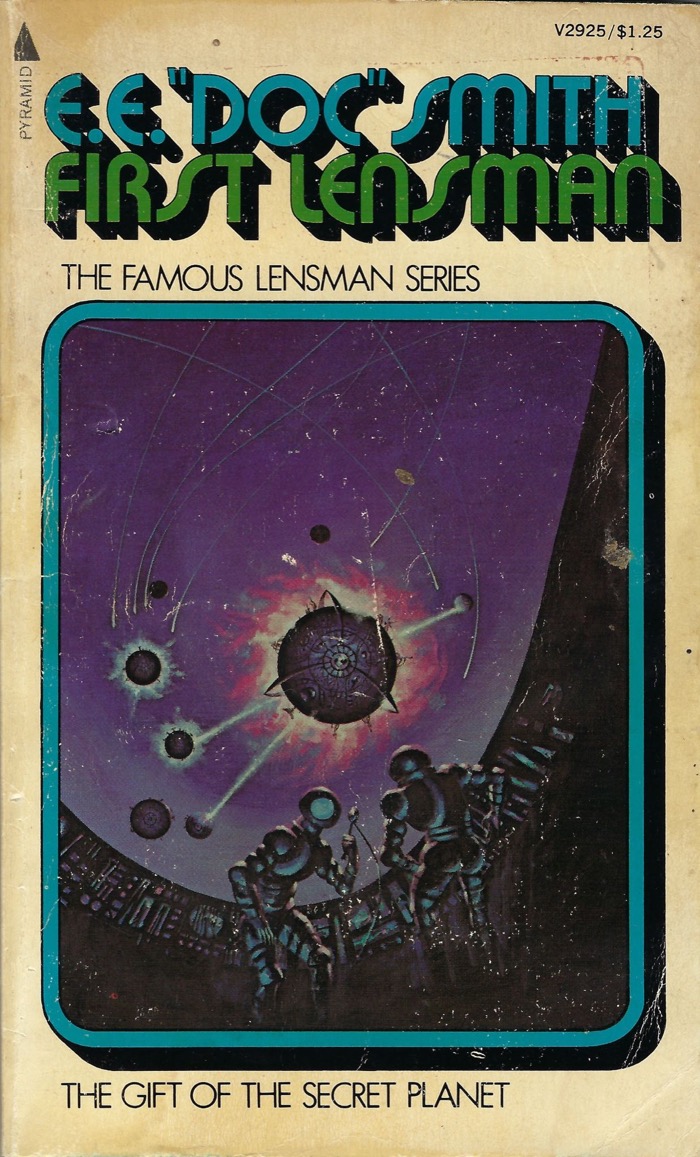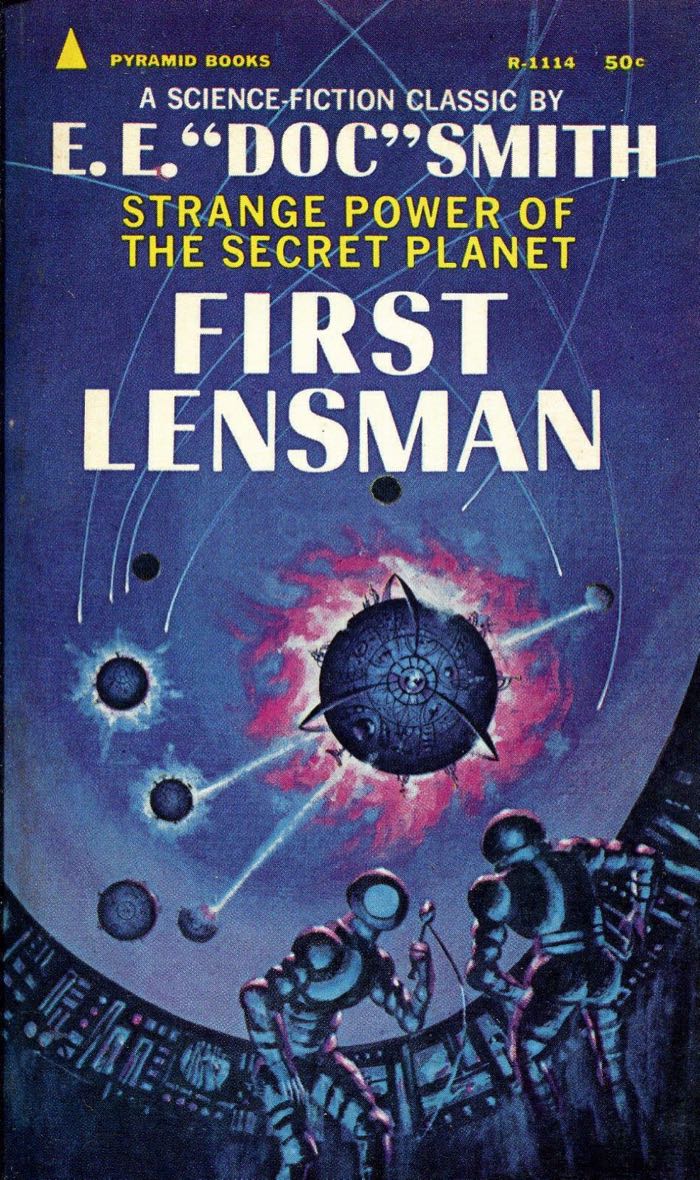First Lensman
Series: Lensman 2
Reviewed date: 2006 Mar 31
Rating: 3
252 pages
First Lensman is E. E. "Doc" Smith's second installment in his unmatched Lensman series. It recounts how Virgil Samms is led to Arisia to receive his Lens and become the first Lensman in history, and how he subsequently founded the Galactic Patrol, and how that newly-born Patrol defended humanity from two grave threats: the military threat of an attack by a mysterious unknown Black Fleet, and an internal threat posed by the corrupt Morgan-Towne-Isaacson political machine. The Patrol defeated the Black Fleet in battle and tracked down those responsible for its creation, and Lensman "Rod the Rock" Kinnison beat the Morgan-Towne-Isaacson machine for election as President of North America. The Patrol emerged victorious on all fronts, and the incorruptible Lensman ensured that that Galactic Patrol would always be a benevolent government.
First Lensman is a better book than Triplanetary, although it curiously suffers from the same ailment: it doesn't have a strong story arc. It seems to be more a series of episodes than a complete story, although the episodes do collectively lead to the same conclusion: complete and total victory for the Galactic Patrol.
A few observations:
- The main character of the book is Virgil Samms, not Roderick Kinnison. The subsequent books in the series focus on a Kinnison.
- It is Virgil Samms, not Kinnison, who goes undercover to Trenco to harvest broadleaf.
- It is Conway Constigan, not Kinnison, who goes to work in a uranium mine and saves many lives after a cave-in.
- I finally understand the reference to the Samms-Olmstead switch that so confused me on previous readings of First Lensman.
- "Christ, what a design--I could eat a handful of iron filings and puke a better emergency pump than that!"
- Smith likes to drop you down into the middle of a situation without filling you in on the background. It's his way of enhancing the element of surprise: deliberately keep the reader in the dark about things that all the main characters know. It's a juvenile writing trick that I don't appreciate.
- "How can legal processes work efficiently--work at all, for that matter--when a man can commit a murder or a pirate can loot a space-ship and be a hundred parsecs away before the crime is even discovered? How can a Tellurian John Law find a criminal on a strange world that knows nothing whatever of our Patrol, with a completely alien language--maybe no language at all--when it takes months even to find out who and where--if any--the native police officers are?"

